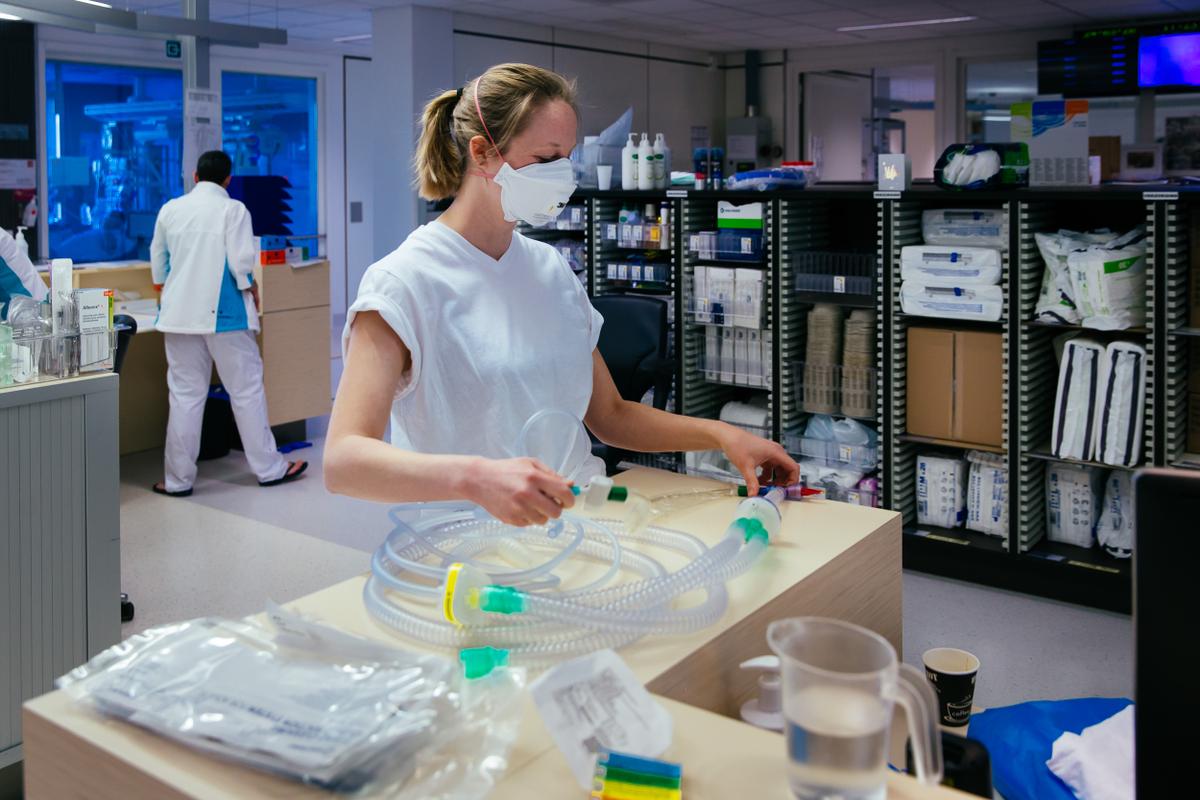The European University Hospital Alliance (EUHA), already called upon national governments and the EU to keep borders open for the supply of medical goods earlier this month. We now, and even more urgently, call upon our regional, national and the European authorities to intensify collaboration and coordination for the supply of medical goods and in particular for the supply of essential drugs for intensive care patients.
We are all aware and thankful for the rapid reaction, the courageous and far-reaching measures that regional and national authorities have taken to slow the spread of the virus and to ensure a sufficient supply of medical goods. However, the situation has now evolved to the point that international collaboration and coordination is absolutely needed.
Stocks nearly empty
A survey of EUHA members revealed that on top of the need for personal protective equipment and ventilators, the most urgent need now is for the drugs that are necessary for intensive care patients. The existing hospital stocks of muscle relaxants, sedatives and pain-killing drugs are consumed rapidly and with insufficient or non-existing resupply have now become the limiting factor in the care for COVID patients. Our members assume that, at the current rate of consumption, their stocks will be empty in a couple of days in the hardest hit hospitals and in two weeks’ time in those with the biggest stocks. Although we have no exact data, we are convinced that the situation is not better in most of the other hospitals in all of our countries. This has already led some hospitals to buy alternative drugs or dosages from those they are used to. It is extremely worrying that overworked and often less experienced nurses and doctors-in-training, drafted in to fill the gaps, have to use products and dosages that they are not used to.
Some authorities have reacted by closing their borders to the export – but not the import – of these drugs. Understandable as this may be to safeguard rapidly decreasing stocks, it will have an adverse effect if it prevents these drugs being exported to cross-border hospitals in need of those drugs. The availability of drugs depends on international distribution networks with specific drugs (including generic drugs) only manufactured at a few sites worldwide. No single country in Europe has the production facilities to provide all of the drugs (or PPE, or ventilators) needed. Moreover, if as a result of ongoing studies, specific drugs may be shown to be active against the corona virus, a coordinated response is again essential to ensure the drug is available to those that need it most and to maximize the benefit. A coordinated European action will be of vital importance in view of the fast approaching and worldwide search for these drugs, which will follow the rapid increase of COVID cases in other parts of the world.
This is why we call upon our authorities to initiate effective collaboration and coordination for the production and distribution of these essential drugs at a European level.
About EUHA
EUHA is an alliance of 9 of the biggest university hospitals or university health systems in Europe. EUHA members are front line COVID hospitals and heavily involved in the intensive care of the most affected COVID patients. EUHA was founded in April 2017 to help develop sustainable healthcare ecosystems in Europe. University hospitals combine top clinical care, research and teaching and play an important role in medical innovation and its translation into daily practice. By working together and learning from each other, EUHA aims to achieve the best results in patient care and join forces for research and education.
The EUHA members are Allgemeines Krankenhaus der Stadt Wien - Medizinische Universität Wien, Austria, AP-HP, Assistance Publique, Hôpitaux de Paris, France, Charité – Universitätsmedizin Berlin, Germany, Erasmus Universitair Medisch Centrum, Rotterdam, the Netherlands, Karolinska Universitetssjukhuset, Stockholm, Sweden, King’s Health Partners, London, UK, Ospedale San Raffaele, Milano, Italy, Hospital Universitari Vall d'Hebron, Barcelona, Spain and the University Hospitals Leuven, Belgium.
